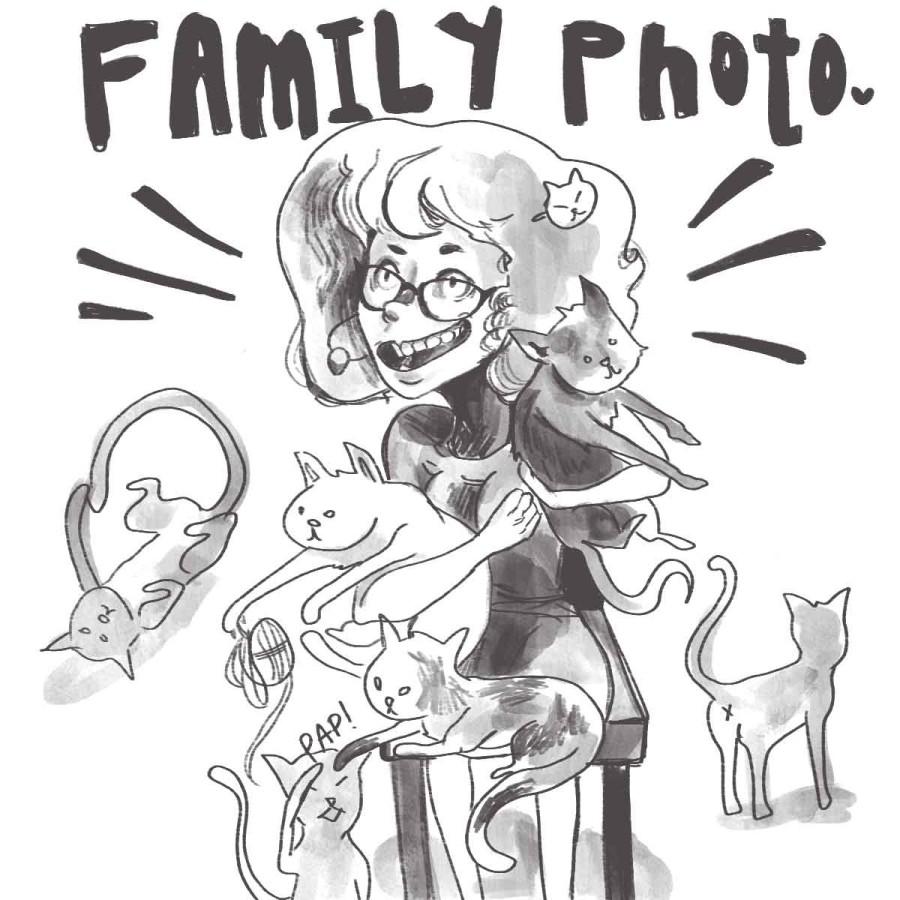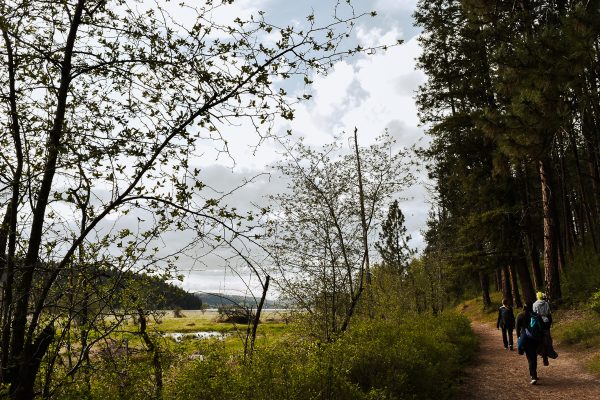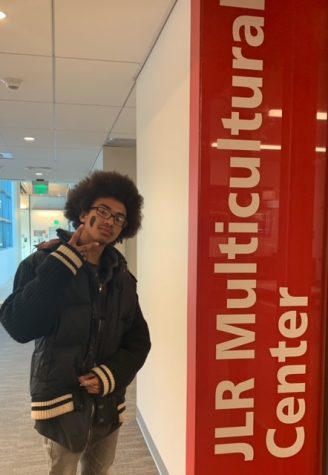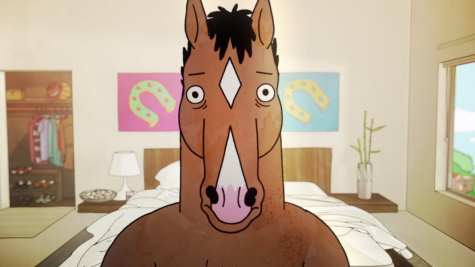‘Crazy cat lady’ stereotype mass-produced
April 20, 2015
While I was visiting Boo Radley’s Gift Shop in downtown Spokane a few days ago, I saw a game that, at first, really intrigued me: The Crazy Cat Lady board game. I found this to be quite hilarious, and I instantly thought of a couple friends, as well as my interesting roommate who owns a young cat, who would like this game. A lot.
My roommate has a cat calendar that references crazy cat ladies, as well as numerous cat-themed memorabilia in our apartment. Even a crazy cat lady coffee mug. I deem myself a cat person too: I have an 11-year-old rescue cat named Angel and a 3-year-old named Felicia who is so mean.
With that in mind, however, I thought, “People are literally buying into a stereotype, specifically, women who deem themselves under this group.” Does that make the stereotype of crazy cat ladies OK?
Not in the slightest.
Why is this problematic? Advertising, female stereotypes regarding hormones and emotions and mass media are constantly producing an image – and profiting off of it – of a woman who is not in her right mind, in so few words.
According to Elizabeth Kissling, Ph.D. and professor in the Gender and Women’s Studies department at EWU, she is not too sure of the origin of the ‘crazy cat lady’ stereotype, yet finds that it stems from an old, familiar stereotype she heard as a college student.
“It’s historically used hand-in-hand with other stereotypes and demeaning terms for unmarried adult women, such as ‘old maid,’” said Kissling in an email.
By buying into this stereotype, many are continuously reinforcing this stereotype into society. A couple examples: The crazy cat lady in “The Simpsons,” “The Cat Lady” video game, cat lady board game and even an action figure. Do a simple Google search, and you’ll quickly get the idea.
In the article, “Stand Up for Your Cats,” by Julia Baird for The New York Times, she said, “The words woman and cat don’t conjure up thoughts of a glamorous fast life, but pajamas, Chinese takeout, bowls of Ben & Jerry’s, couches and DVDs.” Baird goes on by elaborating how even Taylor Swift constantly tweets about her cats and so far as even made her cat a Twitter account. This is becoming a growing fad with many celebrities.
Taylor Swift, under this same stereotype, constantly is referenced online as being crazy, single, alone and “unable to keep a man.” Baird goes on by saying, “Must female cat owners constantly have their sanity questioned simply because they like to coexist with purring fur balls?”
People are buying into the crazy cat lady stereotype because they believe themselves to fall under that category, therefore validating their feelings stemmed around this societally-made stereotype.
“If the traditional goal of femininity is be attractive and charming enough to catch a husband – and it was often framed as a pursuit – then unmarried women were seen as failures, to be pitied and/or mocked. Poor, sad, lonely old women, with no husband or children, only their cats to keep them company,” said Kissling.
Cat lovers around the world: don’t buy into this senseless stereotype. It is not worth the money you make. More so, be a proud cat lover in the way that works for you, not what mass media profits off of.







![Simmons said the biggest reasons for her success this year were “God, hard work, and trusting [her] coach and what she has planned.”](https://theeasterner.org/wp-content/uploads/2024/05/image1-1-1200x800.jpg)










Lynn Thompson • Apr 24, 2015 at 7:05 am
Exactly. I got the name for my online retail site from an insult hurled at me after I was featured in a front-page newspaper story about pet longevity. A large photo of me and my then-21-year-old cat appeared with the story. Some guy (who I imagined to be some fat, middle-aged guy in his underwear living in his mother’s basement) posted the comment, “There’s nothing worse than an old maid cat lady.” At first I was offended, then I thought it was hilarious, and then I thought, “Hmmm, that’d make an interesting brand for the retail site I’ve been thinking about doing!” Now I have over 2,600 products from more than 50 suppliers, all for cats and cat lovers, on the site. Many of them blow that old stereotype right out of the water, as I myself try to do whenever possible!